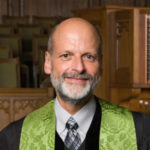 I invite you to take a few moments with me to reflect on today’s Upper Room Devotional below.
I invite you to take a few moments with me to reflect on today’s Upper Room Devotional below.
Thank you for sharing this early moment of your day with me, with God, and with the thoughts and words of this reading that I hope you will carry with you throughout the coming day and night.
Today’s Scripture:
Ecclesiastes 3:1-14 New Revised Standard Version (NRSV)
Everything Has Its Time
3 For everything there is a season, and a time for every matter under heaven:
2 a time to be born, and a time to die;
a time to plant, and a time to pluck up what is planted;
3 a time to kill, and a time to heal;
a time to break down, and a time to build up;
4 a time to weep, and a time to laugh;
a time to mourn, and a time to dance;
5 a time to throw away stones, and a time to gather stones together;
a time to embrace, and a time to refrain from embracing;
6 a time to seek, and a time to lose;
a time to keep, and a time to throw away;
7 a time to tear, and a time to sew;
a time to keep silence, and a time to speak;
8 a time to love, and a time to hate;
a time for war, and a time for peace.
The God-Given Task
9 What gain have the workers from their toil? 10 I have seen the business that God has given to everyone to be busy with. 11 He has made everything suitable for its time; moreover he has put a sense of past and future into their minds, yet they cannot find out what God has done from the beginning to the end. 12 I know that there is nothing better for them than to be happy and enjoy themselves as long as they live; 13 moreover, it is God’s gift that all should eat and drink and take pleasure in all their toil. 14 I know that whatever God does endures forever; nothing can be added to it, nor anything taken from it; God has done this, so that all should stand in awe before him.
Tim’s Devotional Reflection for Today
Today is an in-between day—between the tragedy of the cross on Good Friday and the glory of resurrection on Easter Day. As I think about it, it occurs to me that we always live in an in-between time—no longer the past and not yet the future. We live between past and future.
What is the role of past, present, and future in our lives? We have common sayings that seek to guide us in this issue. For example, about the past we say, “Let Bygones be bygones.” Or, “The past has passed.” Or, “That’s water under the bridge.” About the present, we say, “Live life in the present.” Or, “Today is the first day of the rest of your life.” Or, “Live today as if it were the last day of your life.” Considering the future, we say, “Don’t count your chickens before they hatch.” Or, “We’ll cross that bridge when we get to it.” Or, “We don’t know what the future holds.” There is a lot of wisdom in all of that, but did you notice that conventional wisdom tends to treat the past as of no concern in the future and the future as unknown, and therefore not worth a lot of time and energy? It is all about the present.
There was an ancient teacher of wisdom who was called in Hebrew Qohelet. The name in Greek is translated “Ecclesiastes.” For Qohelet, things are the way they are, set in motion by God and one should not waste energy railing against the way things are; instead, Qohelet advises, “The best thing to do is to be happy and enjoy yourself for as long as you can.”
These verses in Ecclesiastes talk about everything having an appropriate time and give a lot of examples. The writer then goes on to say, “I have seen the business that God has given to everyone to be busy with. He has made everything suitable for its time; moreover he has put a sense of past and future into their minds, yet they cannot find out what God has done from the beginning to the end. I know that there is nothing better for them than to be happy and enjoy themselves as long as they live; moreover, it is God’s gift that all should eat and drink and take pleasure in all their toil.” In other words, the writer is saying that God has given us a sense of past and future and we live between the two. We alone, of all God’s creatures, have this sense of past and future.
We live in the between time. That is where life is lived. The writer speaks of the gift of enjoying life. Someone has said that today is a gift and that is why we call it the present. This moment is a present given to us by God. This is so valuable because we always have some spiritual work to do between past and future.
What is the nature of that work? Our work on the past has two aspects: You could call these Keeping and Throwing Away or Taking and Leaving or Remembering and Forgetting.
Our work on the future also has two aspects: You could call these Hope and Commitment. One aspect of our spiritual work regarding the future is understanding God’s gift of Hope. The Preacher begins by looking at the two extremes of life. These are the bookends of your earthly existence. There is a time when you are born and there is a time when you die and everything else takes place between these two times.
One of the wisest approaches we can take to our life is to know that we are going to die. “So teach us to number our days,” sings the Psalmist, “that we may get a heart of wisdom” (Psalm 90:12). Then we realize that we are not gods, but that we are mortal. Moreover, there is an Everlasting Love beyond the span of our years that holds our lives in merciful hands.
The Good News of our faith is that we can face the future with an attitude of hope. The Good News of our faith is that the future belongs to God. As the old gospel song puts it, “I don’t know what the future holds, but I know who holds the future.”
Another aspect of our spiritual work regarding the future is making commitments. Hope is a dynamic word, just like the words faith and trust. Hope is not just a kind of attitude, but it leads to making commitments and living those out in our lives. It is not just believing, it is acting on that belief.
As we face on uncertain future, let’s ask ourselves, how do I live hopefully? Do I trust God? Do I put my money and my time and my action and my resources and my life where my hope is?
What commitments will you make motivated by hope?
There is a lot of theology woven in to hymns. To enhance today’s reading, I recommend listening to “Great is Thy Faithfulness”. I hope you will take a few moments to let the words of this message and the emotion that always connects us to music connect with your soul. Listen to this hymn on SoundCloud.
Thank you for sharing this early moment of your day with me, with God, and with the words and music that I hope you will carry with you throughout the coming day and night.
I am so grateful for you, for our church, and for the Love that will see us all through this very difficult time. Please stay safe and well and we’ll be together again in spirit tomorrow morning!
Grace and Peace,
![]()
Dr. Tim Bruster
Senior Pastor
Here’s more about this passage of scripture via Upper Room devotionals:
IN ITS TIME
I will measure my success according to God’s word.

